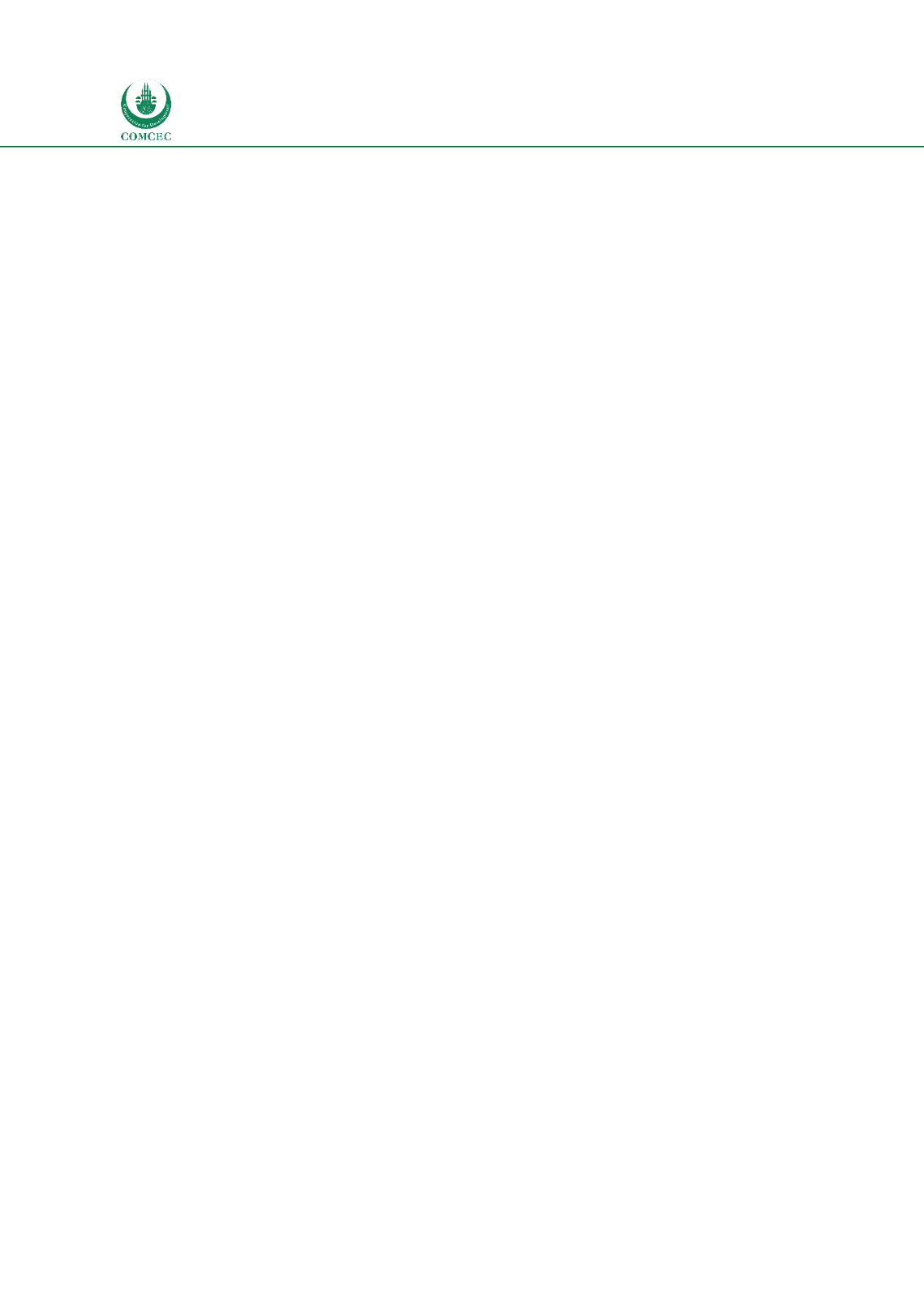

National and Global Islamic Financial Architecture:
Problems and Possible Solutions for the OIC Member Countries
104
4.6.2. Financial System Regulation and Supervision Framework
Central Bank of Oman (CBO) is the regulatory body which supervises the banking sector in the
country. After the amendment of Banking Law in 2012, CBO issued the Islamic Banking
Regulatory Framework (IBRF) to organize and supervise the Islamic banking operations
provided by Islamic banks, Islamic windows and branches. The IBRF contains licensing
requirements, capital requirements, sharia governance components and requirements for
fully-fledged Islamic banks and Islamic windows, accounting and auditing policies, risk
management guidelines, liquidity management and relevant issues and guidelines. CBO has an
Islamic Banking Department which deals with all the issues related to Islamic banks and
windows.
IBRF provides details on the Sharia compliant instruments that can be used by Islamic banks
and requires Islamic banks to inform CBO about any new Islamic banking products launched
by the banks. Title 5 of IBRF provides details of Capital Adequacy requirements for Islamic
banks. The document acknowledges that the Basel Committee capital requirement may not
fully address the capital adequacy requirements for Islamic banks adequately and that the IFSB
standards may be required. As Islamic finance is new in the country, there aren’t adequate
Sharia compliant instruments that can be used to meet the Basel III Tier 1 and Tier 2 capital
requirements. Currently, there are no financial soundness indicators (FSIs) for Islamic banks in
the country.
Islamic capital market and takaful/insurance are supervised by the Capital Market Authority
(CMA). As indicated, while the Islamic capital market is covered by Capital Market Law,
takaful
law has been recently approved. Currently, CMA is working in Sukuk Regulations. CMA does
not have a separate department to deal with Islamic capital market issues.
4.6.3. Shariah Governance Framework
While the Banking Law of 2012 requires financial institutions dealing with Islamic baking to
have a Sharia supervisory board, the details of the functions of the board are outlined in the
Islamic Banking Regulatory Framework (IBRF). Confirming Sharia governance framework as a
requirement for licensing Islamic financial institutions (Islamic banks, takaful and Islamic
capital markets institutions), IBRF provides details about Sharia governance and it talks about
the Sharia Supervisory Board, Internal Sharia Reviewer, Sharia Compliance Unit and the Sharia
Audit Unit. Article 2.2 (Sharia Supervisory Board) in Title 2 (General Obligations and
Governance) in the IBRF provides details of the terms of reference for the Sharia Supervisory
Boards (SSBs) with the following headings: Appointment and Composition; Rules and
responsibilities of SSB; “Fit and Proper” criteria for the members of SSB; Terms of SSB;
Diligence of the SSB member, conflict of interest, and change; Grounds for the disqualification
of SSB members; and Management duties to the SSB.
While larger Islamic financial institutions should establish their own SSBs, smaller institutions
can use an external Shariah advisory body subject to the approval of the Central Bank of Oman
(CBO, 2012). SSB should have at least three Sharia scholars. Members of SSB should be
independent and specialized in
Fiqh al-mu’amalat
(Islamic commercial jurisprudence). In
addition, SSB can include one or more non-voting Muslim members who are not specialized in
fiqh al mu’amalat
. Members of SSB must have academic qualifications in the field of Sharia with
experience of not less than 10 years. Furthermore, SSB members are appointed for a maximum
















